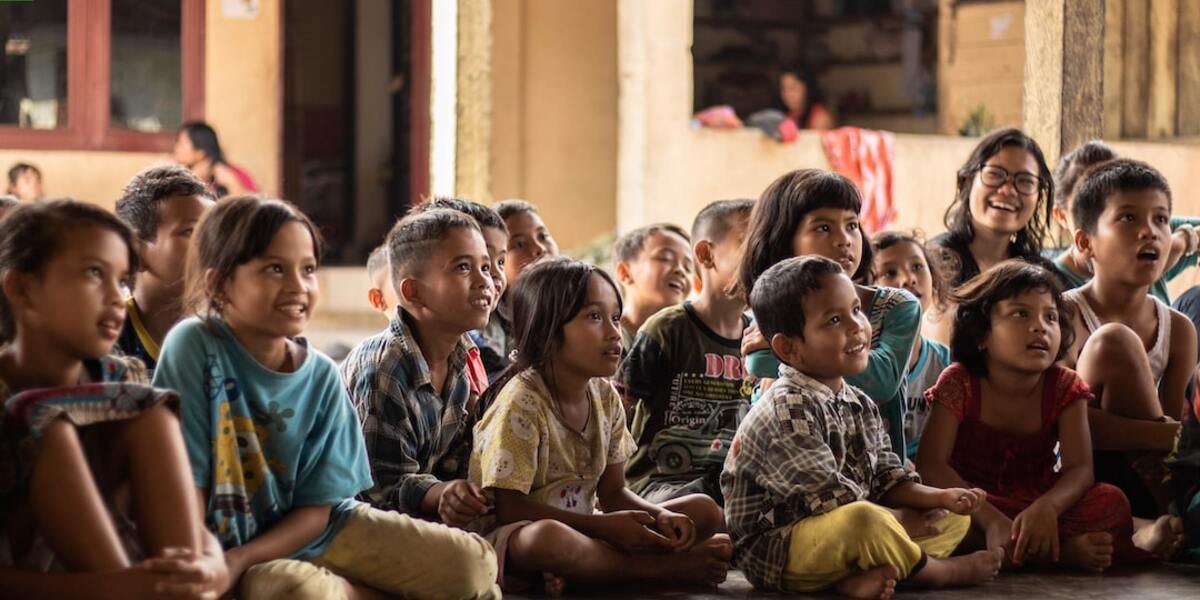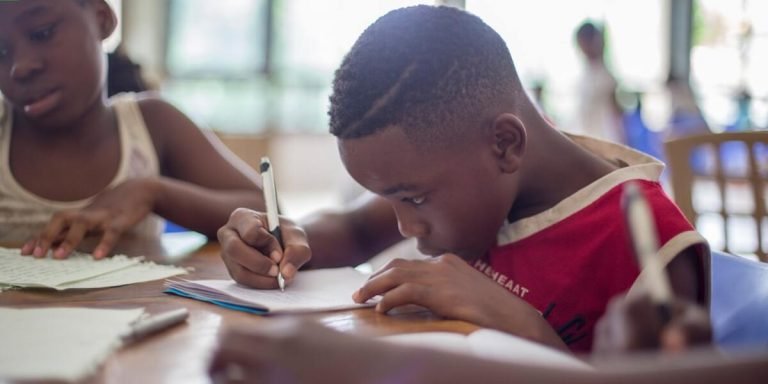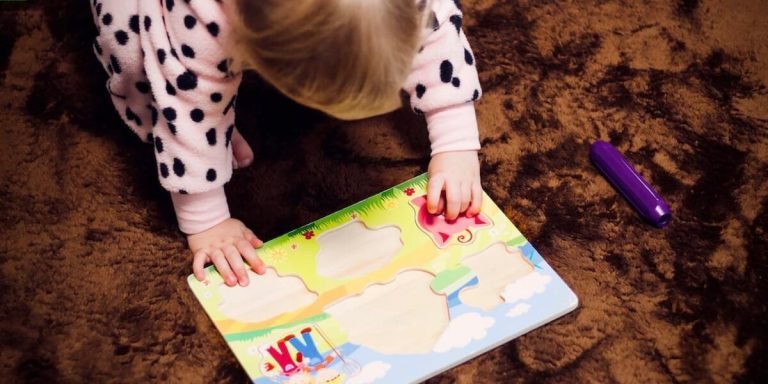Daycare Worker: Key Roles and Essential Qualities for Effective Child Care
Choosing the right daycare worker for your child is an extremely important task, one that can impact a child’s early learning and developmental outcomes. A daycare worker’s role extends beyond mere oversight; they are crucial in shaping a young mind during its formative stages when it is most receptive to new information.
Ensuring that these workers have essential qualities such as patience, compassion, communication skills and understanding of childhood development plays directly into creating an enriching environment for children. This blog post will shed light on some primary responsibilities of a daycare worker along with these indispensable traits needed to offer effective childcare services.
Did you know?
Did you know that according to the Bureau of Labor Statistics, daycare workers with postsecondary education in early childhood development are more likely to have higher paying opportunities as they’re notably equipped for nurturing children’s cognitive and physical growth?
Understanding the Role of a Daycare Worker
In the intricate world of early childhood education, the role of a daycare worker presents itself as invaluable. The responsibilities these professionals shoulder go beyond mere supervision or general caregiving- they are instrumental in setting up children’s lifelong learning patterns and cognitive development. With technological integration proliferating in all aspects of life by 2023, it has permeated into childcare settings too.
Daycare workers now find themselves equipped with digital tools that enhance their ability to cater to each child’s individual needs effectively. For instance, applications supporting curriculum planning help them devise interactive activities tailored for different age groups while promoting crucial skills like critical thinking and problem-solving at an elementary level.
Understanding a child’s developmental milestones is no longer derived from traditional charts but through sophisticated software offering insightful details about how well they’re progressing across holistic growth areas including physical health, social competence or emotional maturity among others. These technology-enabled assessments provide valuable feedback facilitating more strategic interventions if necessary hence ensuring optimal outcomes amidst diversity prevalent within day-care demographics.
While some may argue against excessive screen times for toddlers citing potential harm on their developing brain cells – it’s noteworthy that responsibly embedded tech-intervention can highlight significant advancements instead of detriments.
Learning formats leveraging AR (Augmented Reality) or VR (Virtual Reality) stimulate engaging environments prompting curiosity-led exploration fostering intellectual curiosity furthering neural connections aiding smoother transitioning into conventional classroom-based education setups down-the-line.
Key Responsibilities and Daily Tasks
The key duties of a modern-day childcare specialist can be split into several categories.
1) Facilitating Learning through Tech Tools: Now more than ever, it’s essential for daycare workers to leverage educational apps and e-books that are designed specifically for early childhood education. Daycare workers take on the responsibility of using these tools proficiently, ensuring that they align with each child’s learning pace.
2) Ensuring Online Safety: As children begin interacting online at even younger ages due to increased access to devices such as tablets or interactive whiteboards, protecting against potential risks becomes paramount. This involves teaching kids about internet safety rules while also making sure there is strong parental control settings set up in all technological devices used within the centre.
3) Assessing Development Progress Digitally: The use of tech allows daycare professionals record multiple facets of a child’s development accurately over time. They then share this data securely with parents who may not have an opportunity for regular face-to-face meetings.
4) Regular Communication With Parents: A vital part of being a successful daycare worker is maintaining open lines communication with guardians/parents regarding their ward’s progress via Parent-Teacher apps which allow back-and-forth exchange instantly removing barriers caused by busy schedules.
Essential Skills for Success in Early Childhood Care
In an evolving educational environment where technology integration is becoming increasingly significant, daycare workers play a crucial role in facilitating early childhood education. Their skills extend beyond traditional responsibilities and are now intertwined with efficient administration of modern teaching methods involving digital platforms.
The first essential skill for succeeding as a daycare worker in this era involves technological proficiency. This includes familiarity with interactive learning software, online safety parameters, and virtual classroom tools that enhance the overall development process of young learners. A “daycare worker” must be adept at using age-appropriate technology to create an engaging curriculum catering to different learning styles.
Another invaluable asset lies in understanding child psychology – a strong grasp on developmental milestones facilitates better connection between tech-based instruction material and the learner’s cognitive ability level.
Communication remains key even amidst rapid digitization; however, it has taken new forms such as video conferencing or chats via secure school portals instead of face-to-face dialogues alone. The capability to effectively communicate both verbally and virtually ensures every child can thrive regardless of their preferred method for interaction.
Lastly but importantly, creativity leads the way toward successful pedagogy these days – how does one make coding basics fun for toddlers? Or perhaps teach them about environmental conservation through animated videos? Here’s where innovative lesson planning comes into play ensuring effective transferal of knowledge while retaining attention spans.
Shaping Young Minds: The Educational Impact of Daycare Workers
Daycare workers play a pivotal role in instilling the foundation of learning to young minds. In today’s digital age, they have become vital contributors by integrating technology into early childhood education. They are no longer just caretakers but also educators who employ innovative techniques and tools to engage toddlers.
The educational impact of daycare workers can be seen when youngsters easily adapt technology-driven teaching methods. Daycare environments saturated with interactive tech-tools like touchscreen tablets, smartboards or language learning apps lead children towards active engagement. It is through these technologically facilitated experiences that daycare personnel not only prepare kids for an increasingly digital world but furthermore spark their creativity and curiosity right from infancy.
Equally important, daycare professionals monitor this exposure ensuring it augments rather than hinders holistic development of each child. The calculated introduction of technological elements enhances communication skills among peers fostering social-emotional growth while reinforcing cognitive abilities via engaging activities tailored to individual needs.
Despite being less formal compared to primary schools, daycares act as ground zero where little learners imbibe critical life skills setting them onto an enriching educational journey filled with discovery made possible by dedicated daycare staff mastering new-age pedagogy strategies inspired by modern technology integration trends prevalent in 2023.
Linking Education theory with hands-on practical experience gives greater depth and breadth towards comprehensive understanding and should continue evolving keeping pace alongside our ever-evolving society; after all nurturing budding geniuses warrants smarter ways!
How Daycare Workers Support Developmental Milestones
Daycare workers play a pivotal role in supporting and boosting developmental milestones for children. They set the foundation of lifelong learning by integrating technology in early childhood education, thus catalyzing cognitive, emotional, and motor skills development.
As young minds are inherently curious and eager to explore their surroundings, introducing them to technology at an early age leverages this curiosity into effective learning patterns. Daycare workers employ specific strategies that promote hands-on experiences using technological resources hence nurturing critical thinking from tender ages.
For instance, daycare worker often use educational digital games tailored for youngsters. These games have emerged as an efficient medium of imparting knowledge while ensuring optimum engagement levels among kids. The interactive nature of these applications helps strengthen their problem-solving abilities along with crafting leadership skills.
Further extending on this aspect is the usage of virtual reality (VR) simulation exercises integrated into daycare activities by skilled professionals today’s advanced world demands tech-savvy individuals; therefore incorporating VR within classroom setup can be beneficial not only academically but also ensure future-ready generations who will adeptly maneuver technologies effortlessly later in life.
Notably sharing visual content such as animated videos or infographics help clarify complex concepts while keeping boredom at bay which could potentially hamper overall productivity rates among learners if left unaddressed over time spans- leading towards undermining holistic growth potentialities inherent within each child individually depending upon personal traits personality type etcetera .
Creating an Engaging Learning Environment for Preschoolers
Daycare workers bear the significant responsibility of molding young minds during their formative years. In 2023, with technology integration playing a crucial role in education, daycare educators are no longer simply childminders but have evolved into integral facilitators of early childhood education.
Creating an engaging learning environment for preschoolers encompasses much more than just toys and games. It involves strategically using technological tools to promote learning while still maintaining an enjoyable ambiance. The first step is recognizing that each infant or toddler has unique interests and potentials; hence personalized teaching methods become paramount.
Today’s tech-driven world requires incorporating digital devices as part of children’s daily activities at daycare centers. Devices such as tablets can provide interactive educational apps allowing youngsters to familiarize themselves with the concepts like alphabets, numbers in fun yet subtly instructive ways.
However, balance is key when leveraging technology within a nursery setting so it doesn’t diminish hands-on experiences which remain fundamental for overall development. For instance, combining traditional storytelling sessions with digital storybooks supplements visual aid alongwith encouraging imaginations flourish naturally.
In addition to this blend approach towards physical-digital mediums being beneficial from engagement perspective,it also helps prepare these tykes gradually for future schooling where they will be exposed to varied forms at length.
Navigating Challenges: A Daycare Worker’s Guide to Problem-Solving
In the hustle and bustle of a daycare center, problem-solving skills are intrinsic for any daycare worker. They encounter unique challenges in their day-to-day activities that require innovative solutions. More often than not, these issues revolve around adapting to new educational technologies designed to enhance early childhood education.
A typical challenge is integrating technology into learning while keeping it developmentally appropriate for youngsters. For instance, introducing digital storytelling might sound like an avant-garde idea but imagine young children creating and narrating their own stories using touchscreen devices! It invokes creativity while teaching them basic tech literacy which has become inevitable bearing this advanced era of 2023.
That said, striking a balance between hands-on traditional play methods and modern technological approaches can be intricate – yet rewarding when approached with finesse.
Furthermore, another hurdle could stem from resistance or lack thereof technical understanding amongst parents or fellow educators about using technology in education at such an initial stage of childhood growth phase. As front-line workers shaping up future generations in today’s digitized society bridging gaps through effective communication strategies instills confidence within parents regarding their child’s safe navigation into the tech-world right from Daycare institutions.
Managing Behavioral Issues in a Child-Centered Approach
Managing behavioral issues in kids can be a daunting task for any daycare worker, especially considering the unique needs of each child. In this digitally advanced world, technology integration has been proven to simplify and streamline various aspects of early childhood education.
The first step towards managing behavior is understanding it. Technology comes handy here by providing tools that help observe children’s actions systematically over time – tracking trends or triggers leading to particular behaviors. For example, an app might track how well sleep patterns correlate with occurrences of outbursts throughout the day.
Interactive games play a significant role in teaching social skills and emotional control too – vital components when addressing behavioral concerns . Role-playing via digital storytelling platforms allows children to explore different scenarios from various perspectives without actual confrontation.
Simultaneously, we cannot leave traditional methods behind; integrating tech should complement our approaches instead of replacing them entirely. Maintain open lines of communication with parents using cloud-based systems which keep them updated about their child’s progress real-time whilst fostering trustful relationships.
Finally yet importantly let us remember not all technology may support every kid equally; customization based on individual learning styles is key in making ‘technology integration’ successful .
As experts suggest , “Early Childhood Education” demands more than just systematic academic instruction ; nurturing emotional intelligence plays a crucial part as well . By adopting such inclusive measures , we are aligning ourselves with best practices allowed by technological advancements made till 2023 thereby committing ourselves towards raising better learners and leaders tomorrow .
Promoting Inclusivity and Diversity within the Classroom
In today’s dynamic and evolving society, it’s more crucial than ever for a daycare worker to promote inclusivity and diversity within the classroom. This boosts not only cognitive growth but also empathetic development in children.
The key importance of promoting an inclusive learning environment cannot be underestimated. It allows students from diverse backgrounds to feel welcomed, accepted, and valued. By creating an atmosphere that celebrates differences rather than suppressing them, we enable young learners to understand global perspectives from a tender age.
A few methods one can employ as part of early childhood education include:
1) Introducing multi-cultural learning tools: Utilize illustrative books or interactive digital platforms displaying stories about cultures across the globe generating curiosity while being informative.
2) Making education technology-friendly: The year 2023 has seen numerous advancements in educational technologies which should be integrated into teaching methodologies for modern classrooms. Audio-visual aids such as VR headsets or language apps offer experiential ways for kids to explore different lifestyles around the world.
3) Encourage multilingualism: Promote languages other than English either by hiring educators versed in multiple dialects or using tech-savvy language-learning software/apps with wide-ranging dialect selections.
4) Organise Cultural Celebrations: Establishing days celebrating international holidays educates children on traditions while encouraging respect towards cultural variance.
5) Foster open conversations about difference – facilitating dialogues between peers under guidance encourages acceptance at an individual level leading to collective harmony over time.
Conclusion
In summary, the daycare worker’s role is an intricate blend of caregiver, educator and nurturer. It doesn’t take just anyone to fulfill these duties – it calls for someone endowed with essential qualities like patience, passion for children’s learning, communication skills and a keen empathetic spirit. The right person can turn their daycare into not just a place of supervision but also of education, growth and positive experiences.
As you continue on your journey towards delivering quality child care or finding the perfect match in a daycare worker for your young one(s), remember that knowledge is power. Our website offers ample resources tailored specifically for parents and educators alike aiming at educating children most effectively. Delve deeper within our pages; there are so many more insights waiting to be discovered about childhood education!







